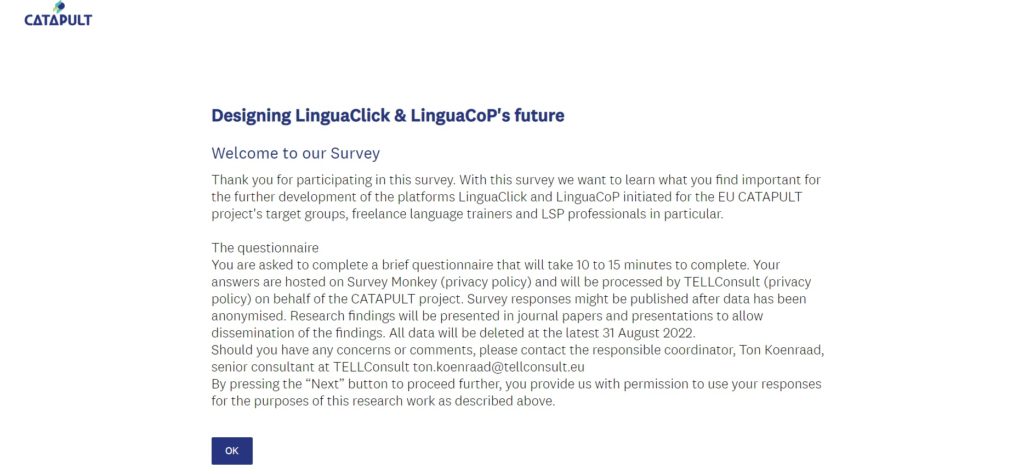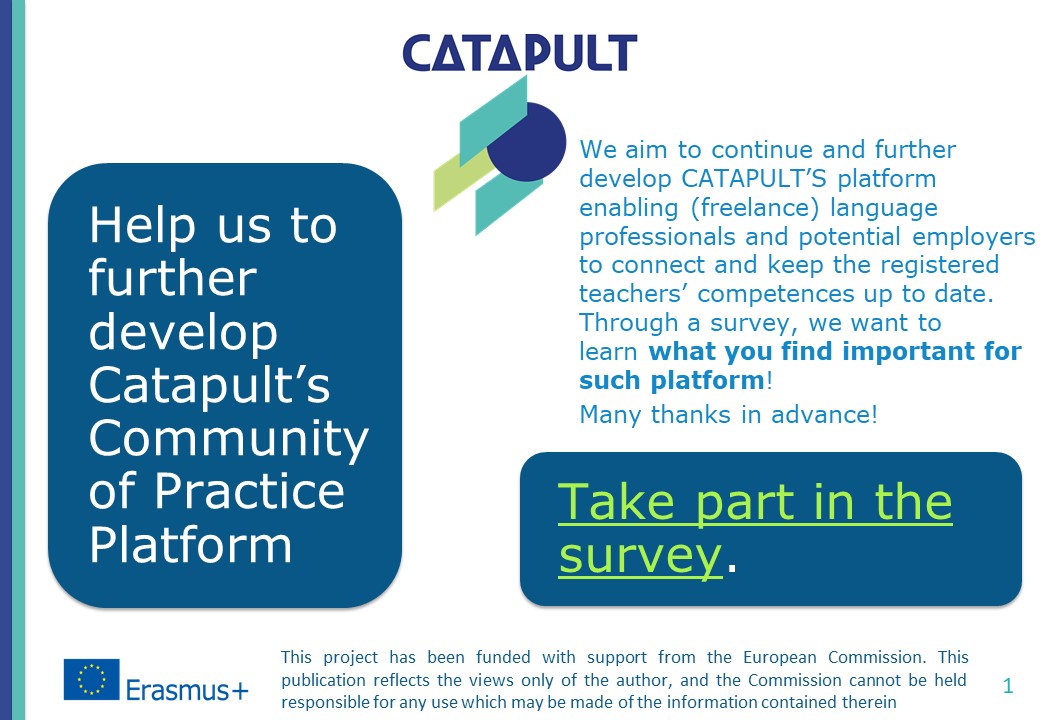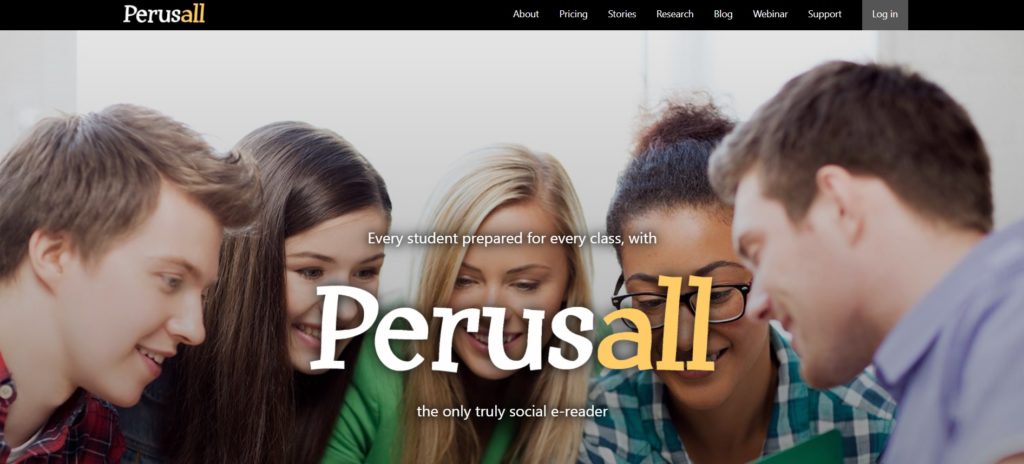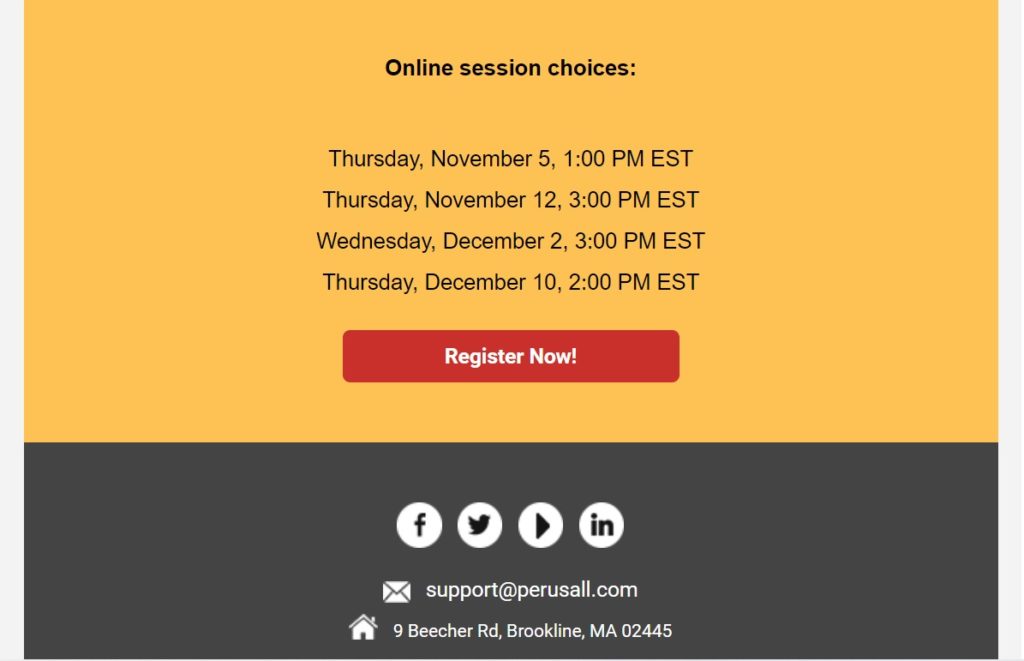The EU project CATAPULT, Computer Assisted Training and Platforms to Upskill LSP teachers (Project N°2018-1-FR01-KA204-048053) aims to continue developing its online platforms with a facility for language professionals and potential employers to connect (multilingual LinguaClick https://linguaclick.com/ ) and providing opportunities for professional contact with colleagues and customised professionalisation to freelance (LSP) language trainers across Europe and beyond (LinguaCop, https://linguacop.eu/ ).
With the survey ‘Designing LinguaClick & LinguaCoP’s future‘ we want to learn what you find important for the development of our platforms. https://www.surveymonkey.com/r/Catapult_Platforms
Your input will have a strong impact on the update of the platforms.
The survey will stay open until April 5 May 3.
Many thanks in advance!




